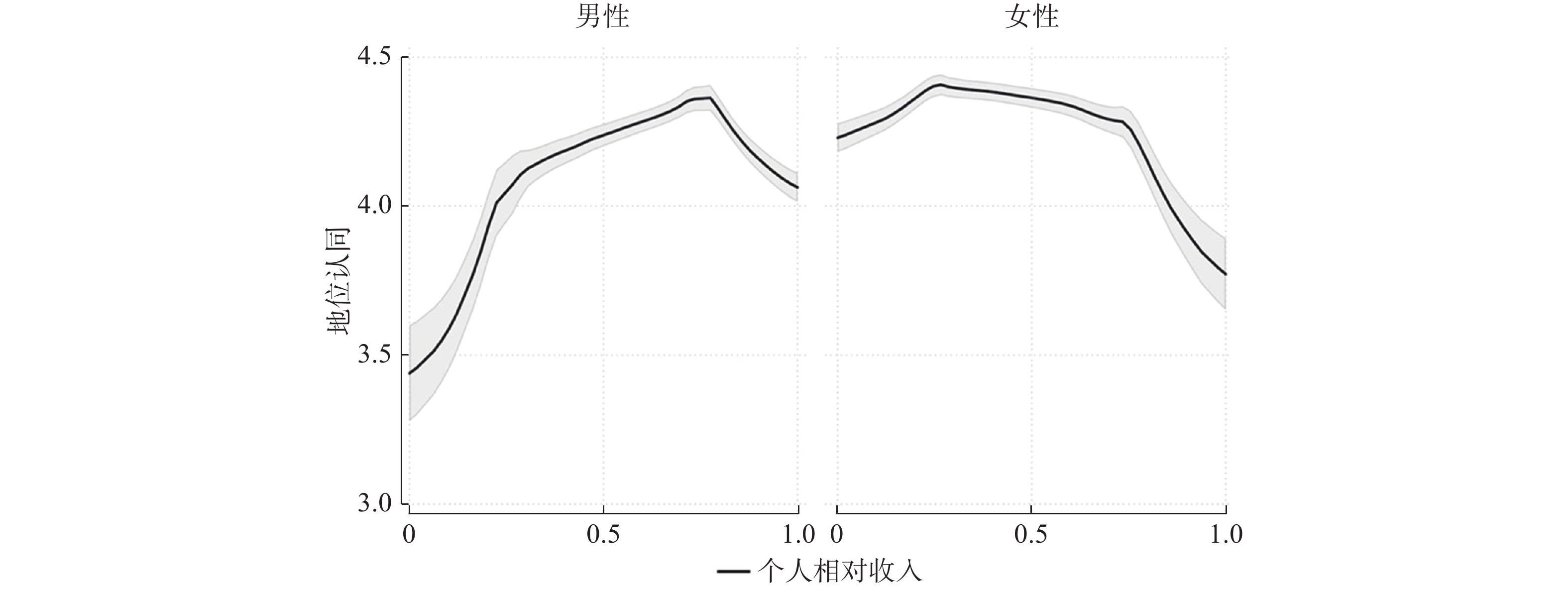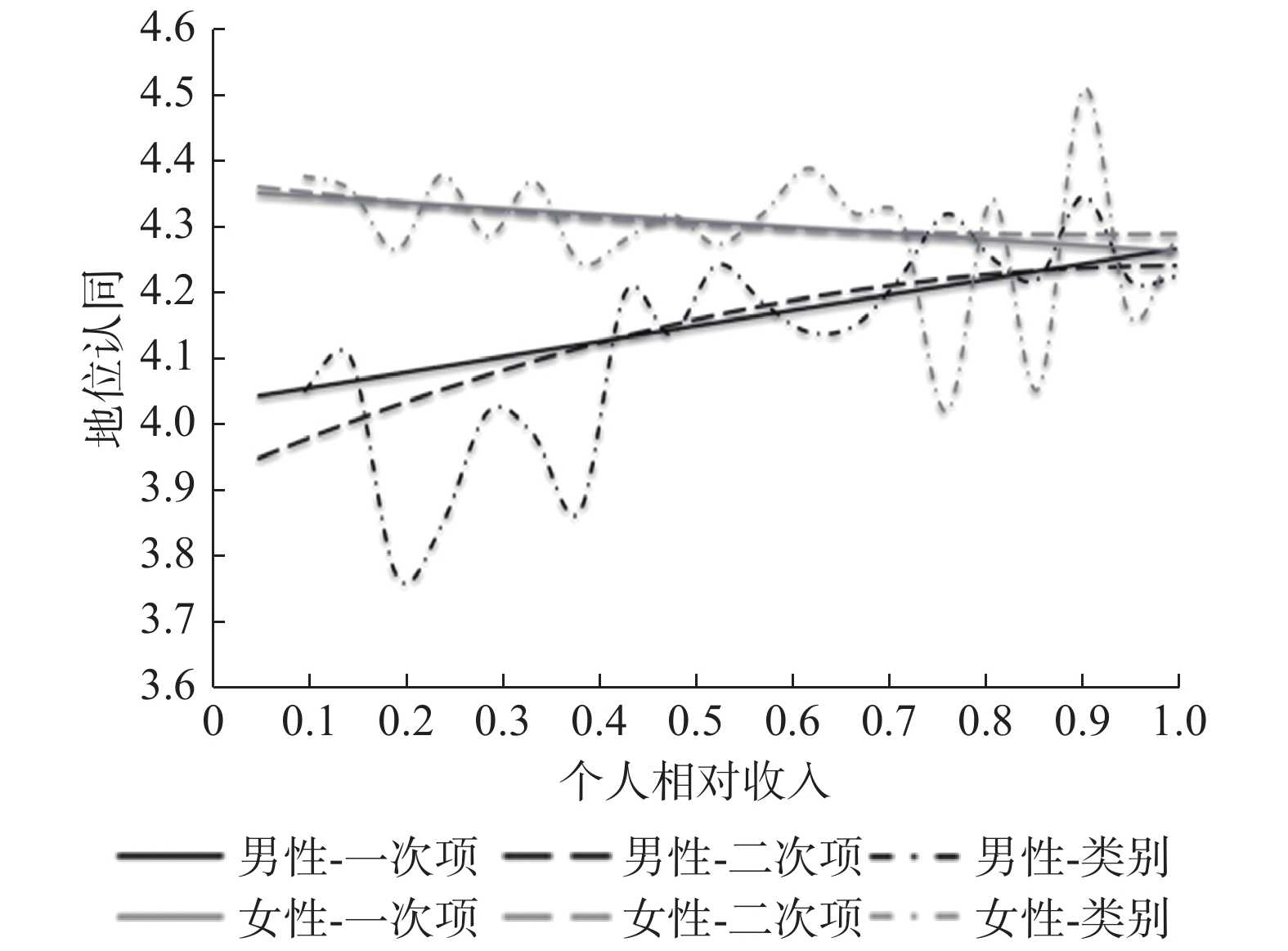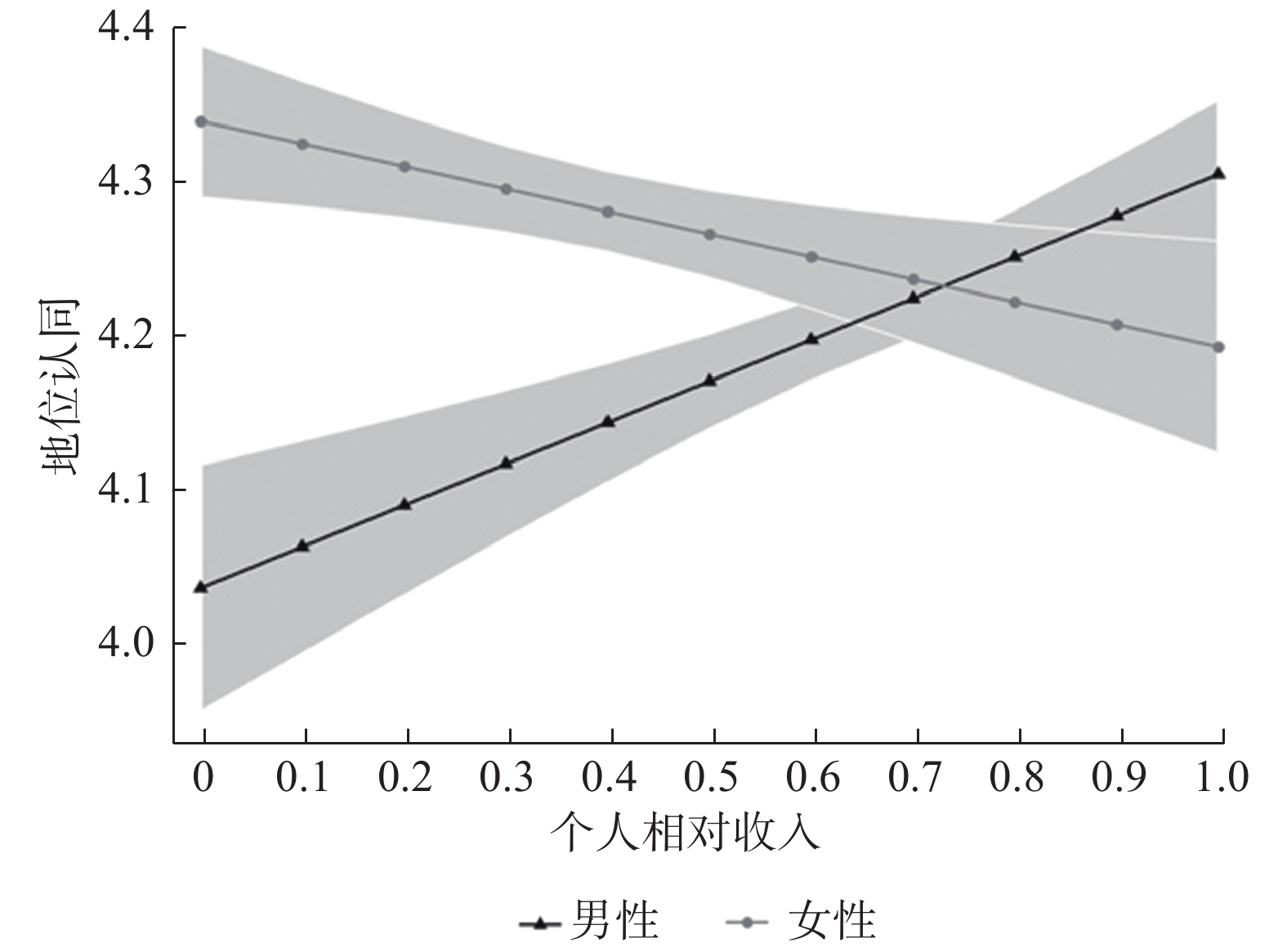Relative Income and Class Identification of Chinese Couples
- Available Online: 2021-09-20
Abstract: On the basis that the class identification of Chinese couples is still in the unit of family rather than the individual. While the status determinism thesis emphasizes that an increase in the absolute income of each spouse will enhance both of their class identification, it is still unclear how the relative income between husband and wife affects their respective class identification. This article proposes a theoretical framework of “social comparison-gender norms”. Based on the analysis of five waves of Chinese General Social Survey datasets from 2010 to 2017, this study shows that the relative income between husband and wife and the gender norms together shape the husband and wife’s class identification. Specifically, the increase in relative income only significantly enhances the class identification of married men, but not the married women. Constrained by the traditional gender roles, income is not a kind of resource for comparison between married women and their spouses, and changes in relative income do not significantly affect married women’s class identification. Therefore, the theoretical framework of “social comparison-gender norms” can better explain the formation mechanisms of the class identification among Chinese couples.




 沪公网安备 31010102003103号
沪公网安备 31010102003103号 DownLoad:
DownLoad:

